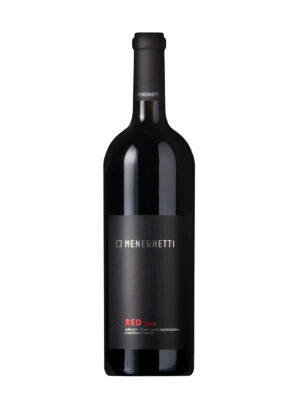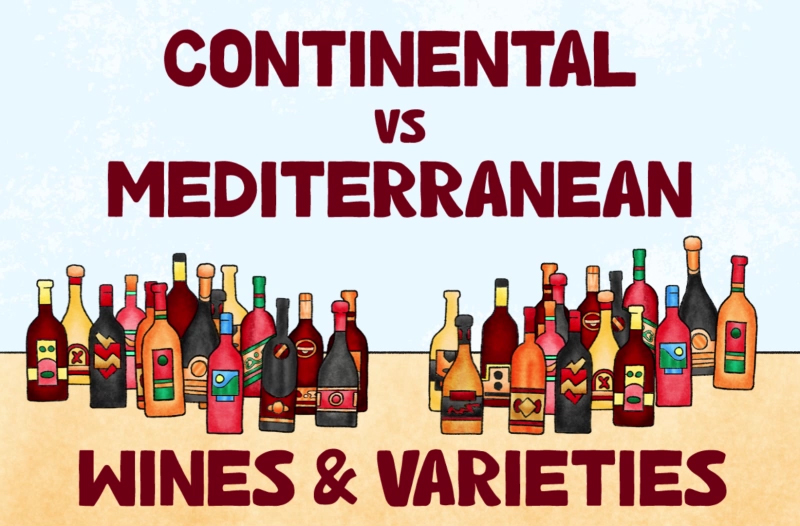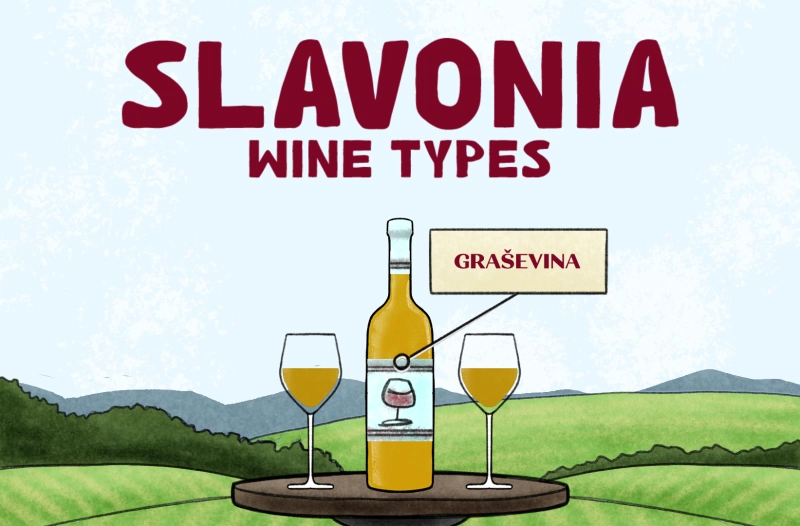Top 10 Croatian Rosé Wines
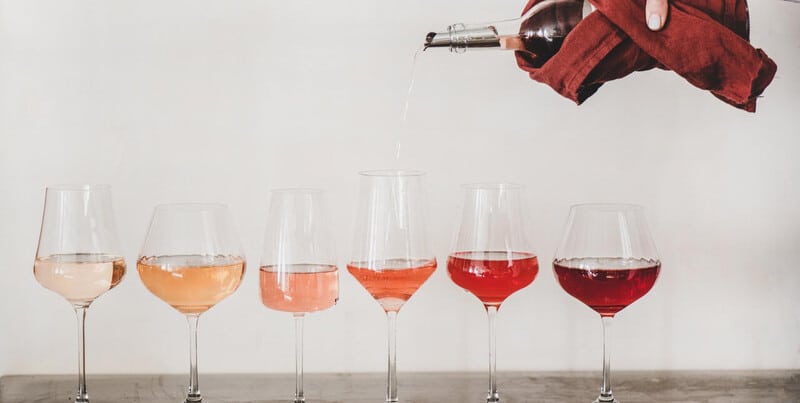
It’s that time of the year again – rosé season! The demand for rosé wines keeps skyrocketing each year, and Croatian winemakers are ready to please wine lovers with their newest creations. Although most rosé wines are meant to be consumed within the current year, some extraordinary samples have the potential to improve with age in bottle. We’ve rounded up ten of our favorites that we’re absolutely buzzing about this season. So, get ready to taste some of the most delicious Croatian rosé wines!
Frano Miloš Stagnum Rosé
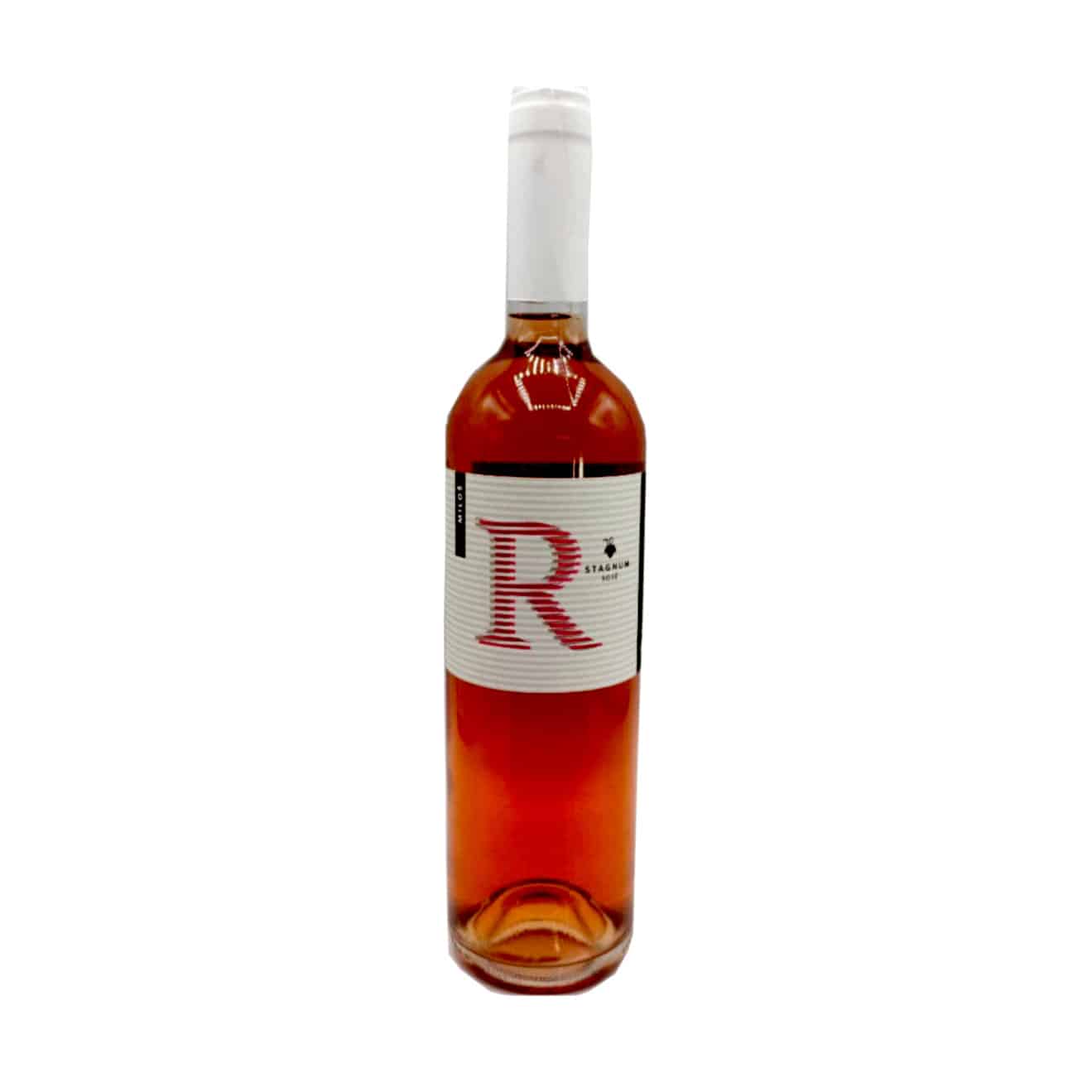
A rosé like no other! Crafted by the legendary winemaker Frano Miloš and his sons. He’s known as one of the most important interpreters of the Plavac Mali variety, and his rosé wine is truly unique and characterful. At first controversial, today it represents the finest expression of Plavac Mali in the rosé genre.
The Miloš winery is a true custodian of Dalmatian heritage, as their wines reflect terroir, centuries-old traditions, and a completely traditional way of winemaking.
Stagnum Rose is not a typical rose but a genuine representation of Plavac Mali. Like a good Plavac Mali, it will mature in the bottle over time.
This wine showcases fruity aromas and distinctive herbal notes that will evolve in your glass as it opens up. It combines the power and richness of Plavac with the elegance and freshness that make a great rosé—bursting with red fruit flavors and the recognizable aromas of the hot Mediterranean bush, typical of all Miloš family Plavac Mali wines.
Korta Katarina Rosé
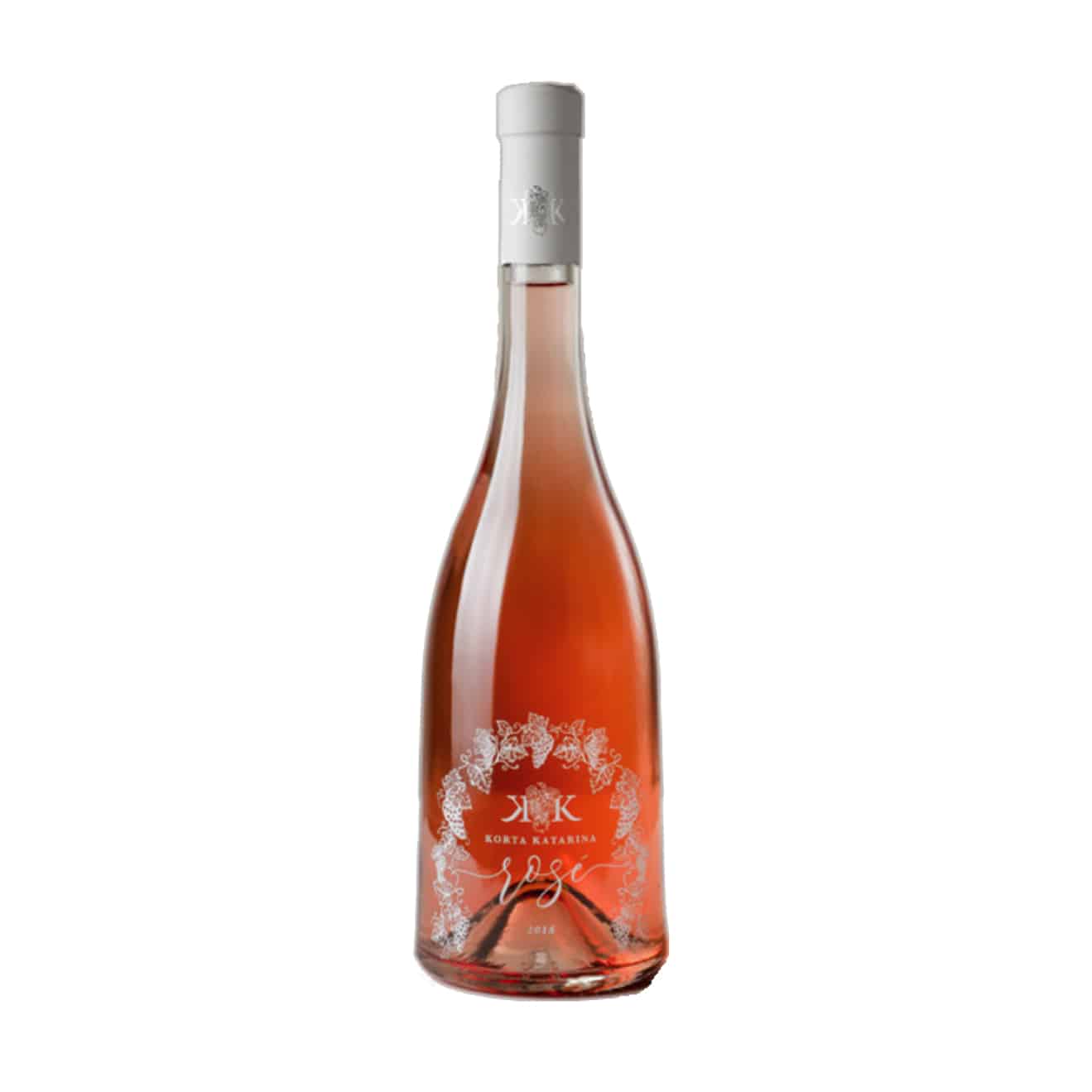
Korta Katarina, a renowned winery from Pelješac, produces some of the best Croatian rosé wine from Plavac Mali grapes. Light pink, the color of salmon, the intensely attractive scent of blood orange, and forest strawberry, with some cherry in the background, dominate the wine.
The taste is lively and juicy, completely dry, exuding freshness, elegance, and expressiveness on the palate and the nose. It has a medium body, balance, and a mild finish—a modern interpretation of rosé wine from the Plavac Mali.
St. Hills St. Heels Rosé
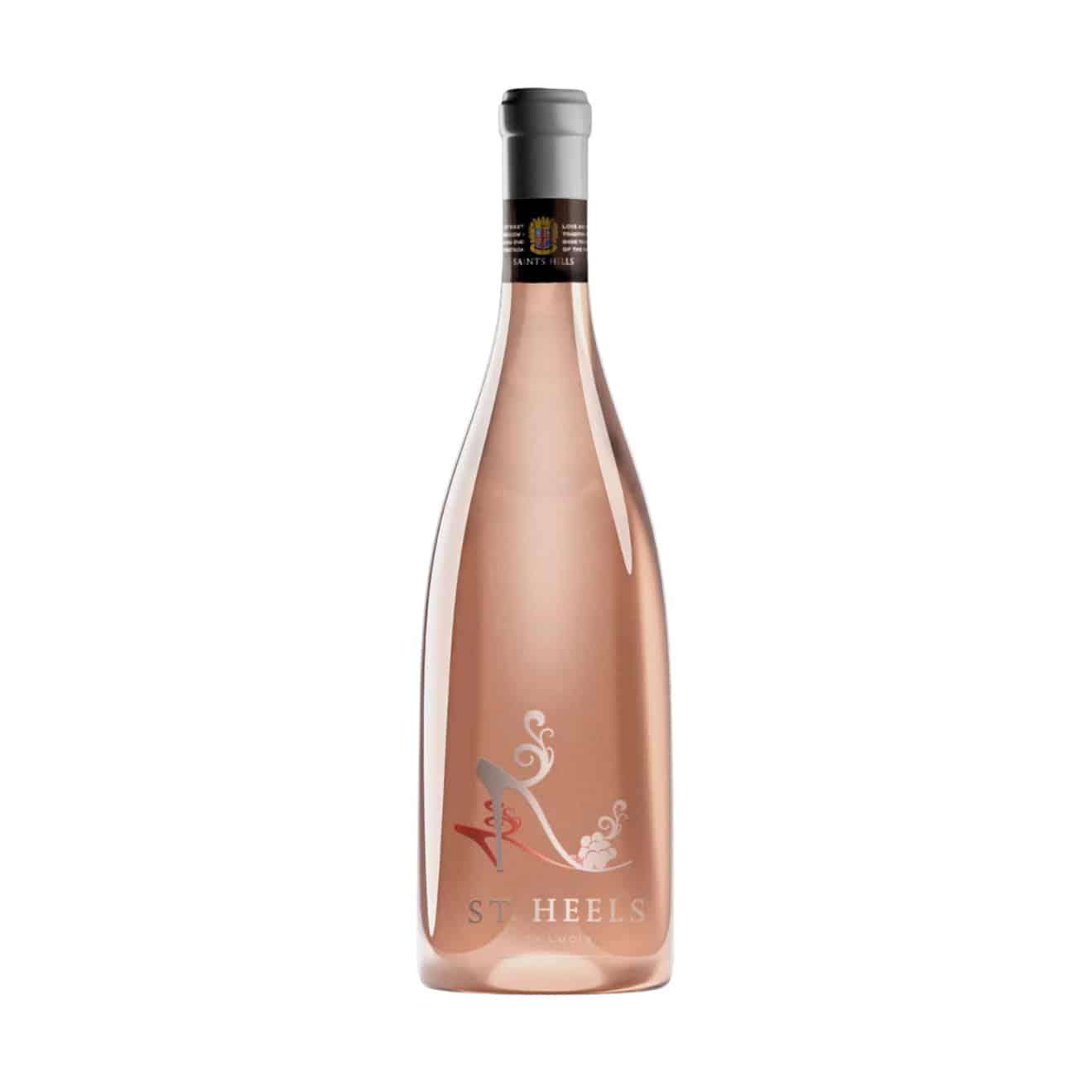
Have you heard of Dingač? It’s the first place in Croatia recognized, in 1961, as an appellation with “Protected Geographical Origin. “ The locals there have been making amazing wine with the native Plavac Mali for centuries, and it’s always been considered the heart of Croatian winemaking.
The vineyards in Dingač are very steep, which means that all the work in the vineyard is done by hand. Despite the triple insulation, the grapes keep a balanced acidity and develop layered aromas. Amazingly, the grapes go through a double sorting process: cluster by cluster and berry by berry.
And get this: the Saints Hills winery Rosé is the first Dingač Plavac Mali vinified as a rosé! Dingač wines are usually known for being dense, alcoholic, and powerful, but this rosé is different. It’s a fresh summer wine with a fullness characteristic but with a specific terroir character. It’s got a deep pink color, medium density, and fresh strawberry and raspberry flavors. It’s a complex, fresh, and intense rosé!
Roxanich Portorose
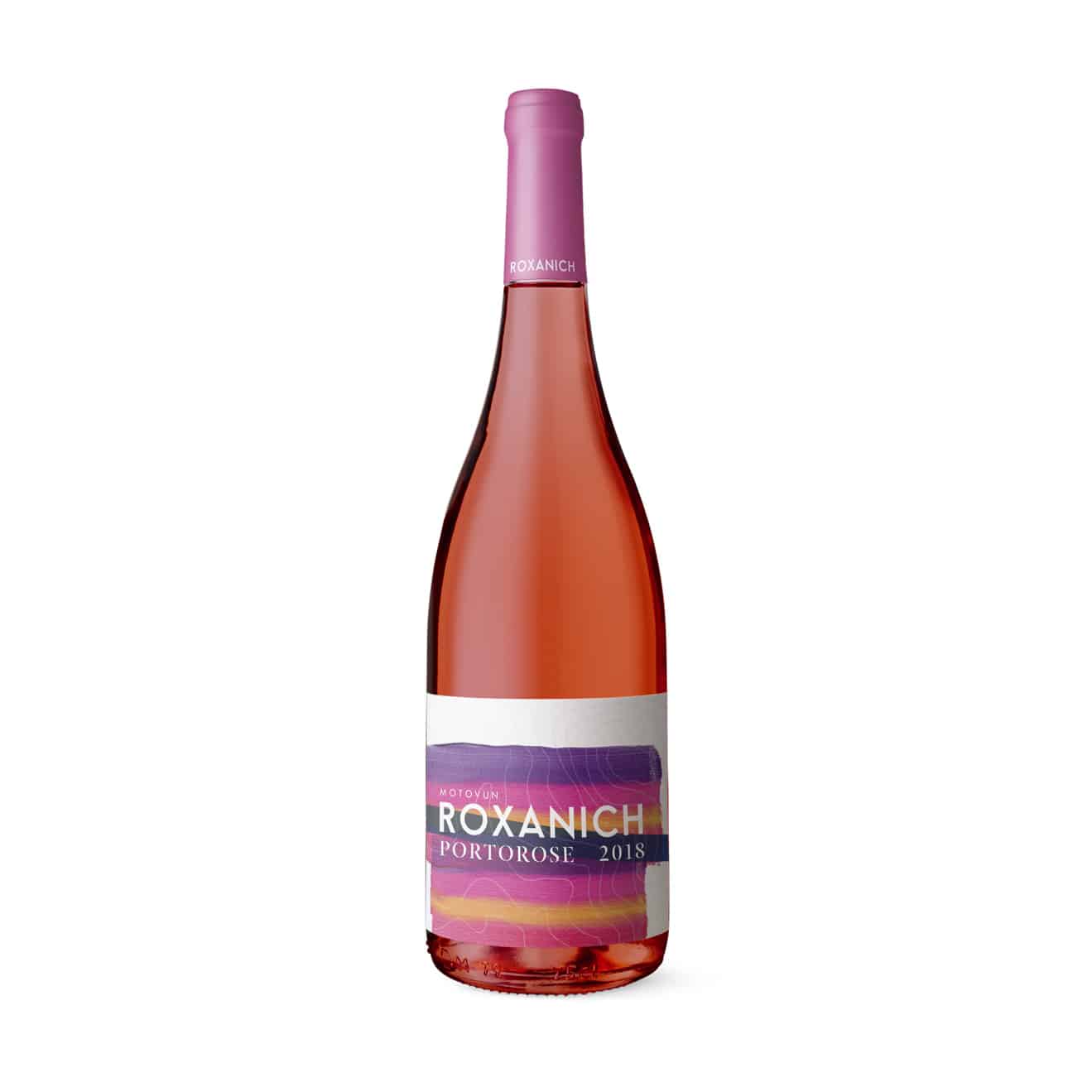
Roxanich winery produces natural wines using traditional methods of yield control and minimal intervention. They grow and cultivate indigenous and international grape varieties while adhering to the highest ecological standards.
One of Roxanich’s best-known wines is a dry rosé called Portorose, which has fruit and herb notes, a light tannic grip on the palate, and medium acidity in its body. This wine offers a distinctive gourmet palate with an intense bright color that illustrates nuances of rosehip and pomegranate. It has an elegantly bodied variety of spicy and earthy aromas, with fresh raspberries, cranberries, strawberries, and a hint of lavender.
Delusional Wine Rosé
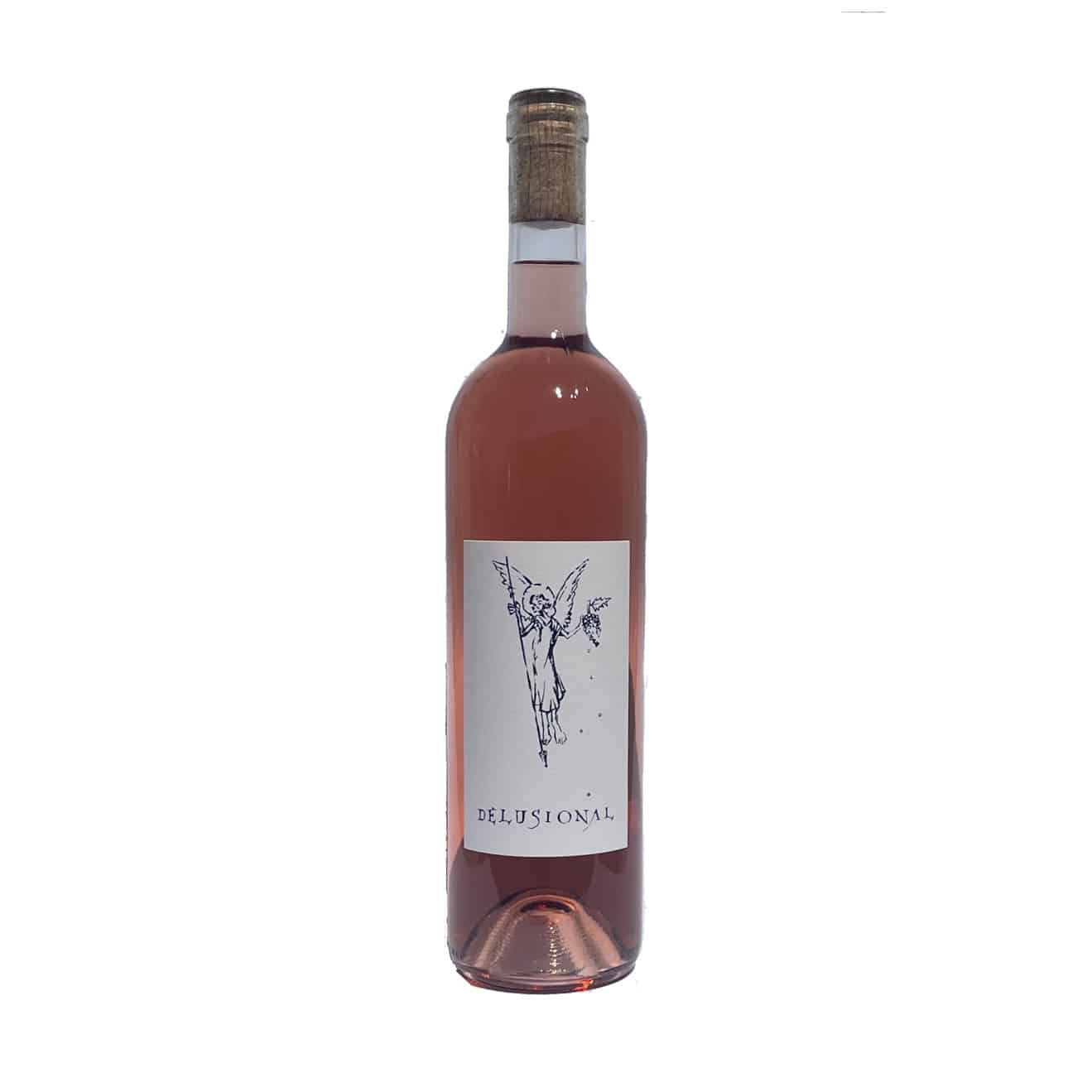
The story behind Delusional winery is pretty cool! Mike Pulley left his corporate job in London to follow his dreams and start a boutique winery on the Dalmatian coast. His friends thought he was crazy, but he did it anyway, and now we have this fantastic wine made from the native Croatian grape Babić. The terroir where the grapes are grown is unique too. The vineyards in a village called Jadrtovac, close to Šibenik, in a thriving wine sub-region, overlook the Adriatic Sea. The karst limestone soil gives wines a unique minerality.
So, back to the wine itself, Babić is a rosé with a lot of character. It’s got more body and intensity, with flavors of cherry, pomegranate, and a hint of minerality. The aromas are subtle but pleasant, with notes of wild rosehip.
The taste is lively and juicy, with a nice balance of acidity and a long, intense finish. This isn’t just a wine you sip on a hot summer day – it’s one you pair with food to bring out its flavors.
Ante Sladić Lasina Opol
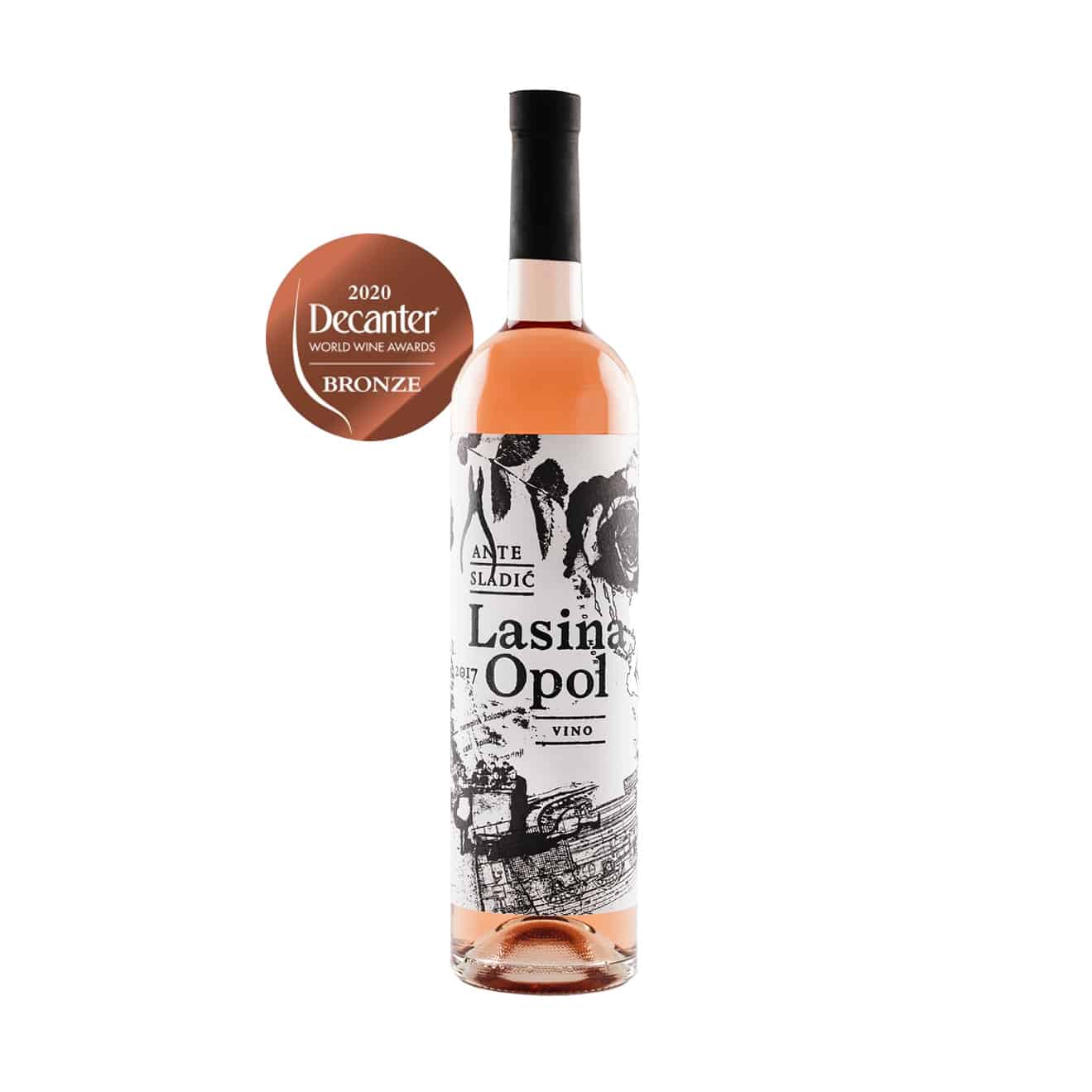
Ante Sladić winery is a family-run winery located in Plastovo, up on a hill overlooking Skradin and close to the Krka National Park. They’re all about preserving native grape varieties and working to cultivate their vineyards eco-friendly. This winery has a long history and a real passion for making wine.
One of the grapes they grow is the rare and tricky-to-cultivate Lasina, which produces wines with unique aromas. It’s sometimes referred to as “Dalmatian Pinot Noir” for its elegance and quality, but it’s a wine with a distinctive character.
They also make Opol (the traditional name for rosé wine from Dalmatia) from grapes grown in a special vineyard with fertile limestone soil.
It’s a lighter shade of pink with a strong aroma that combines ripe fruit and more complex scents. It’s light and fresh and has a fruity, floral aroma with a touch of minerality. It’s a real crowd-pleaser with its lively taste, sweet on the nose but bone dry on the taste.
Overall, Lasina Opol is definitely worth checking out if you’re into rosé wine and want to try something new and exciting.
Volarević, Rosé La chic!
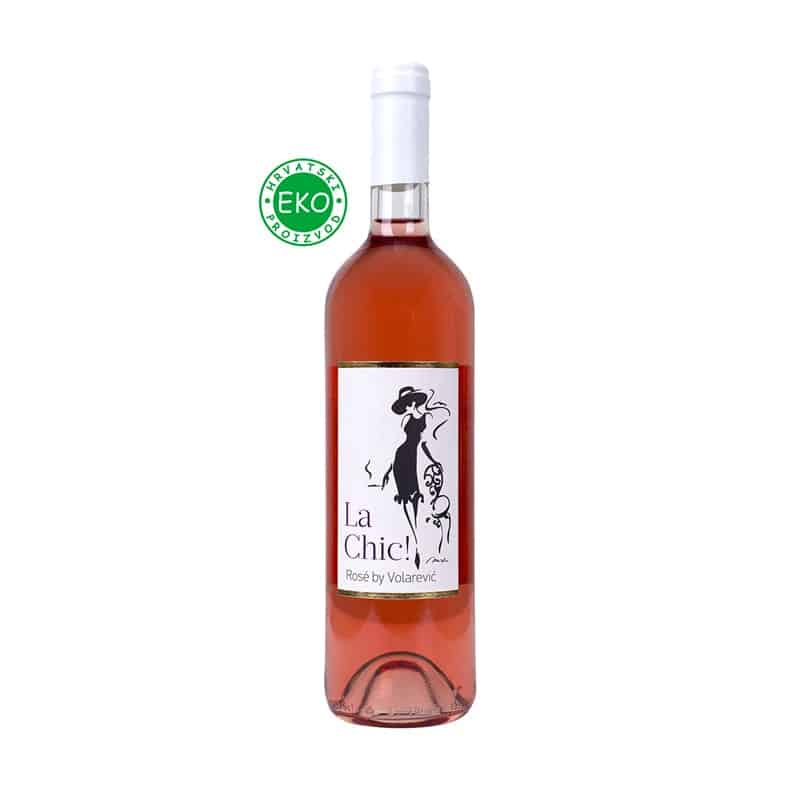
The Komarna wine region has its microclimate, apparent in its rosés wines. The rosés of Komarna have a subtle aromatic quality, with numerous Mediterranean herbs and floral notes that come after the initial fresh fruitiness.
The Volarević winery is a family-owned winery that planted the vine on a field of quartz on the slope near the sea in the bay across from the Pelješac peninsula – in Komarna. The micro-location has triple insulation from the sun, stone, and sea, ideal for the Plavac Mali grape that can endure such extreme conditions.
Volarević rosé has a delicate and pale pink color and a subtle fruity and floral aroma with associations of red fruit. It has a light and refreshing taste, soft and juicy at first but intense and long-lasting. As it develops in the mouth, it moves from juiciness to freshness and minerality, with its most beautiful part being the aftertaste, which is lively, intense, and full of aromas.
Domaine Koquelicot Koquette
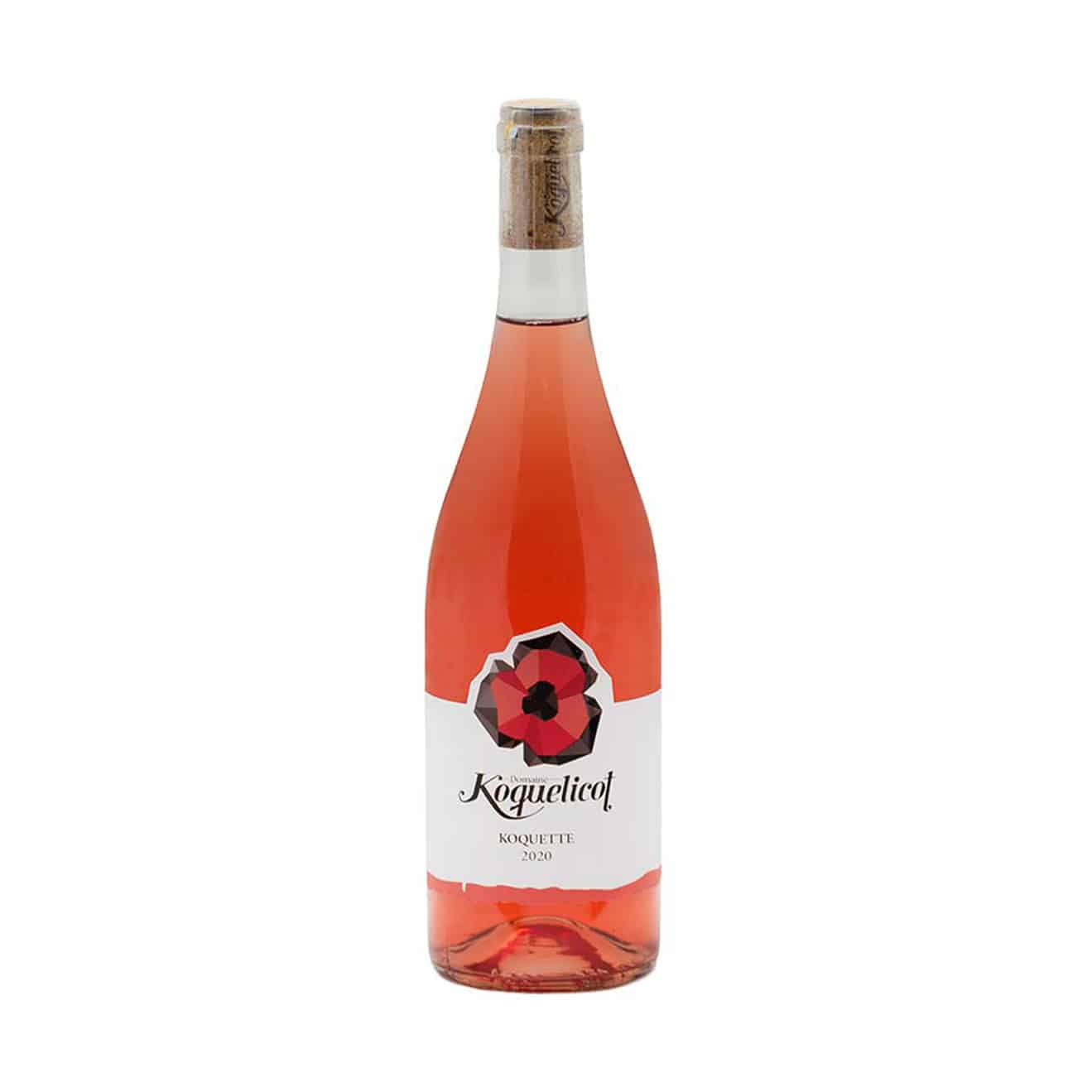
Domaine Koquelicot may sound like a French winery, but it’s actually an intriguing story about Olivier Ertzbischoff, a Burgundy wine enthusiast, and Jacqueline Marovac, born in Rijeka. They acquire grapes from local vineyards and skillfully process them in their own cellar.
Using his connections with French winemakers and enologists, the winery produces excellent wines that combine the style of Burgundian whites with the Istrian terroir. Their selection is straightforward, with Chardonnay, Malvasia Istriana, and a combination of the two varieties. The winery’s name is a customized adaptation of the French word for poppy.
In addition to their white wines, Domaine Koquelicot offers a refreshing Merlot rosé from central Istria that undergoes a brief maceration before being vinified sur lie in stainless steel for seven months.
Galić Rosé
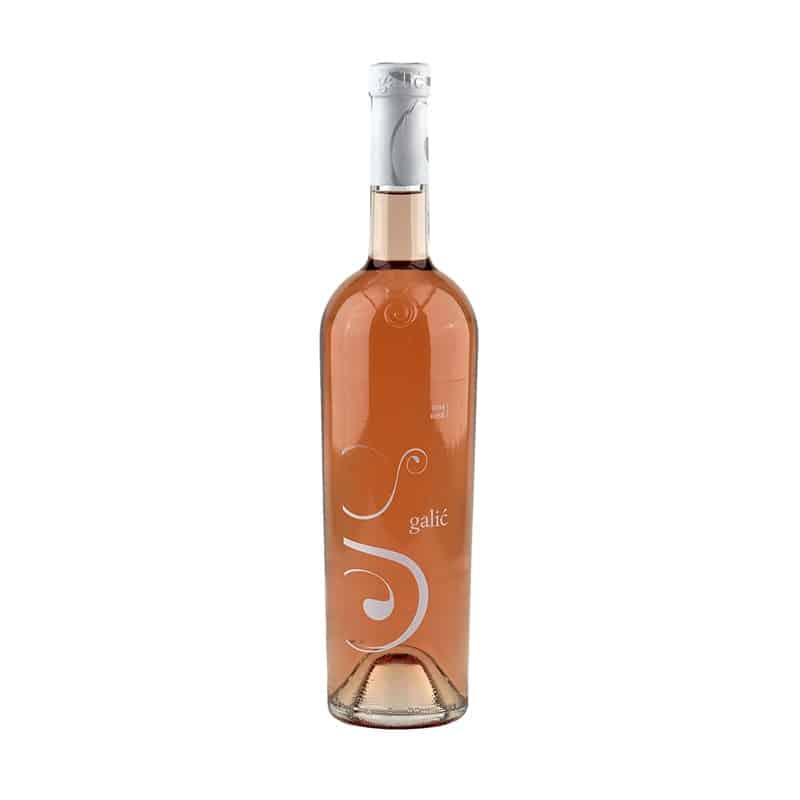
Galić winery Rosé is almost completely dry with a pale, Provencal rosé color and fruity, fresh, and mineral notes. It’s an excellent rosé wine and a great example of the successful evolution of Croatian rosés.
Now, it’s a staple in many high-end restaurants and bars. This wine blends Cabernet Sauvignon, Merlot, and Pinot Noir. It has a delicate salmon pink color, with a herbal and fruity aroma that mixes green herbal notes with attractive fruity hints of raspberry and strawberry. The taste is lively, elegant, and refreshing, with a certain sweetness on the finish.
Kutjevo Premium Rosé
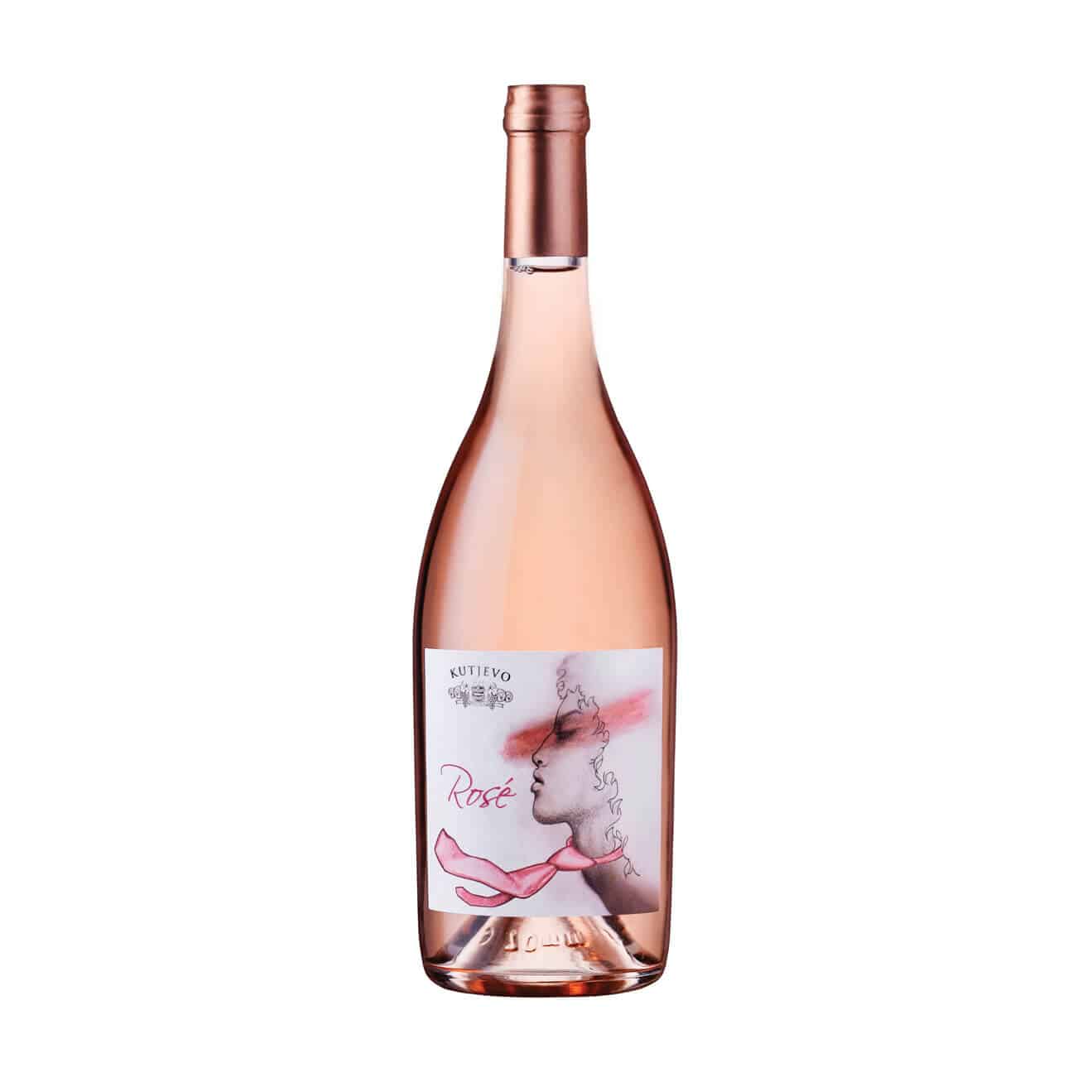
Kutjevo winery Premium Rosé, a blend of Zweigelt and Pinot Noir grapes, is one of the most sought-after Croatian rosé wines. In its elegant burgundy bottle and attractive label, this wine perfectly complements the pale pink color, playful hints of strawberries and raspberries on the nose, and refreshing elegance in the mouth.
You’ll notice hints of raspberries, blackberries, wild strawberries, lime, orange peel, and ripe pomegranate. The taste is lively and vibrant, with an elegant touch and a good intensity.
Are you ready to experience more rosé sensations? Look no further than our expertly curated selection of the finest rosé wines from Slovenia, Croatia, Bosnia and Herzegovina, and Macedonia.


